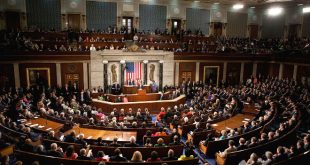Editor’s note: this piece was coauthored by Austin Stone.
Every election cycle, Republicans talk about winning the black vote. But they face a dilemma: Since 1964, black Americans have consistently voted democrat 90% of the time. That would certainly suggest that black voters are in lockstep with Democrat party values. But having been promised the moon and gotten nowhere, perhaps Republicans can now bring pro-black politics back down to earth by relying on the expression of shared values.
The Republican Party was once the party of choice for practically all black voters. The party of Lincoln, having been founded as an abolitionist movement, enjoyed near-unanimous black support in the midst of post-Civil War Reconstruction. The emergence of Jim Crow segregation policies initiated by southern Democrats and codified by President Woodrow Wilson kept most black voters comfortably Republican until the New Deal.
Policies designed to ease the burdens of the Great Depression were seen as beneficial to many blacks who managed to get past poll taxes and literacy tests to vote at all. However, it was under the presidency of Franklin D. Roosevelt, a Democrat, that black Americans experienced the most critical moment in their relationship with politics. In 1939, mere months before the Japanese attack on Pearl Harbor, a black concert singer named Marian Anderson was scheduled to perform at an event sponsored by the Daughters of the American Revolution. But the Daughters’ venue, Constitution Hall, refused to allow a black singer to perform.
Eleanor Roosevelt, the First Lady, publicly resigned her membership as a Daughter of the American Revolution and arranged for Anderson to sing in a free concert on the steps of the Lincoln Memorial. The massive crowd of 75,000 people included men, women, and children of all races. It was and still is a big deal for blacks that Mrs. Roosevelt, and thereby the President, would make such a gesture.
Black voters respond to sacrifice and action—especially when it is perceived to advance black legal, educational, or social status. Sometimes this perception does not reflect reality, such as during the Obama years. When Barack Obama was elected president in 2008, Gallup measured an historic uptick in optimism about race relations. However, as the recent report “Black Opinions and Voting Behavior” by the Center for Urban Renewal and Education (CURE) has measured, President Obama’s eight years in office sent this promising statistic plummeting back down.
The CURE report also points out that what black voters want is sometimes zero-sum. That is, blacks strongly prefer a large federal government because they perceive big government as necessary to their economic status and other cultural inclinations. If Republicans oppose a large federal government, as they do, then blacks perceive the Republican party as opposing the big government programs that support them economically and culturally, and that are necessary to their economic status and other cultural declarations.
However, the report also finds significant areas of common ground: for example, many black voters join conservatives in opposing same-sex marriage and supporting school choice. Black Americans have one of the highest rates of church attendance of any group in the country, and most believe that morality comes from God. These culturally-conservative values set black voters at odds with Democrats—though generally not enough to push them toward voting Republican.
If conservatives want to promote policies that really serve the black community, it is not enough to talk about big versus small government. Culture is paramount. Black voters want to feel they are being respected and affirmed. As the CURE report points out, post-New Deal Dwight D. Eisenhower was and still is the best-performing Republican candidate among blacks. That’s because he delivered. Eisenhower ended segregation in the military and in the federal city of Washington, D.C., and significantly increased the percentage of black federal employees. These were real overtures to the black community that earned their vote despite Eisenhower’s fiscally conservative, small-government platform.
But the 39% black vote enjoyed by Eisenhower was short-lived, as by 1964 blacks voted for Democrat Lyndon Johnson at 95%–leaving only 5% for the Republican, Barry Goldwater. What happened?
Despite his reputation as an unapologetic racist, Lyndon Johnson is credited with having pushed through the 1964 Civil Rights Act while Barry Goldwater publicly opposed it. Along with the 1965 Voting Rights Act and the big-government Great Society, Johnson and the Democrat party became the champion of black economic and cultural interests.
Thus, if Republicans want to earn back some of the black vote that is now dominated by Democrats, they must structure their message to prioritize the black affinity for faith, family, and morality, while also satisfying the black interest in a social safety net and racial progress. The CURE report shows that 84% of blacks believe that racism is widespread in the United States today, and 57% view themselves as “have-nots.” Republicans must therefore acknowledge the continued inequalities that black Americans feel, and ascertain why many view the federal government as the only solution.
Only then can Republicans make the case for self-reliance, political independence, and economic empowerment in the black community. For decades, it has been very easy for Democrats to promise black voters bigger government in exchange for votes, especially because they routinely make overtures like Eleanor Roosevelt’s. Republicans must first show they care about black issues; second, show they share many conservative values; and only then can they make black voters aware of a better way forward than merely relying on more government.
Photo credit: justgrimes (Creative Commons) – Some rights reserved
Curtis Hill is the former attorney general of Indiana and Senior Fellow at the Center for Urban Renewal and Education (CURE).
Austin Stone is Managing Partner at Beck & Stone. He is currently on assignment in Washington D.C., serving as COO for the Center for Urban Renewal and Education (CURE). He can be found on Twitter at @ausstone.
Do you like this post? Sign up for more!
 CURE News and Clergy Blog News and Commentary for Christians
CURE News and Clergy Blog News and Commentary for Christians



